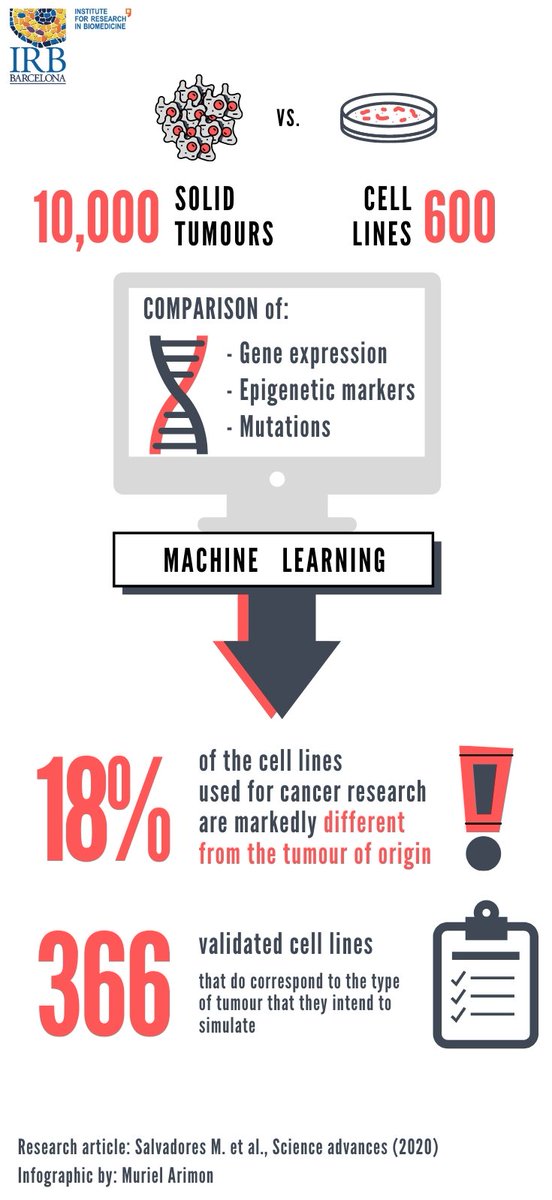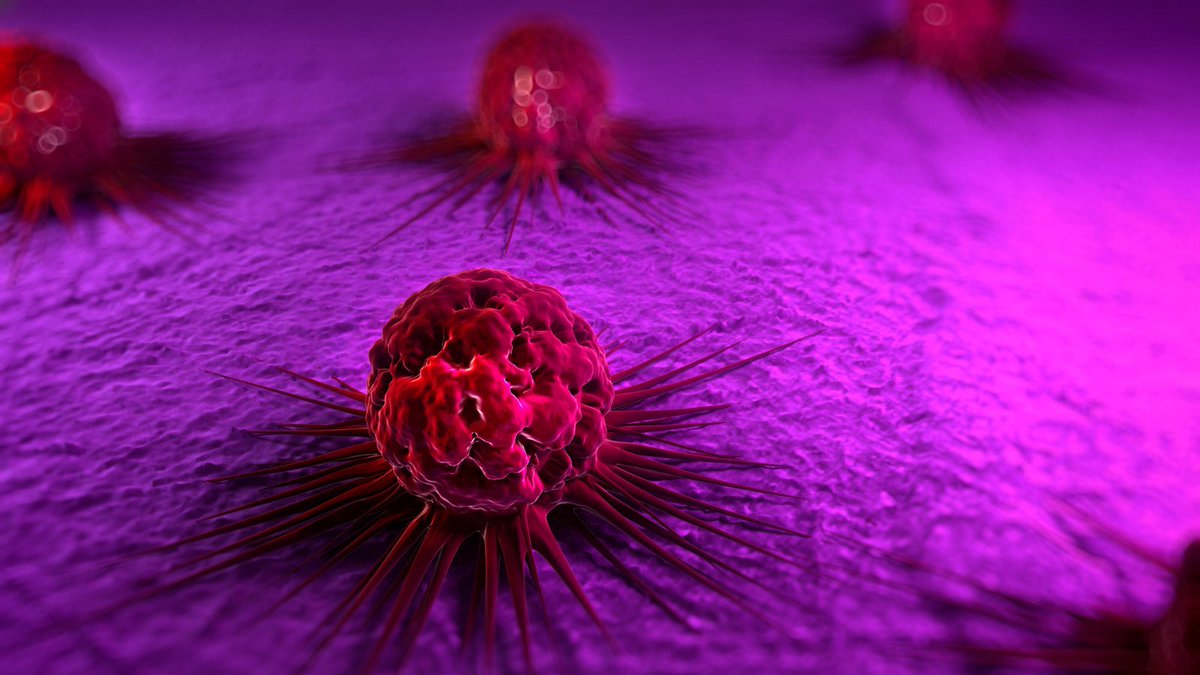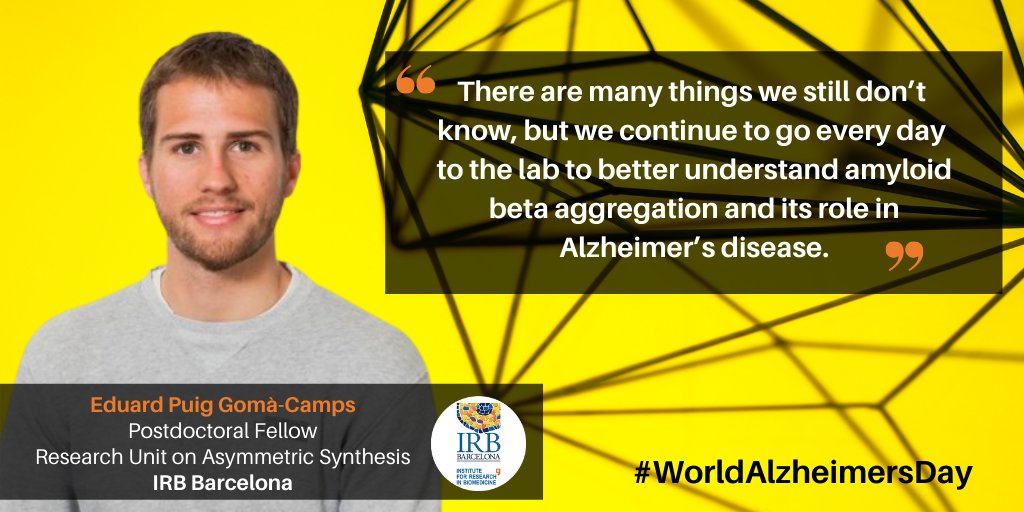#IRBScience: Did you know that 7% of #cancer cell lines are misclassified and actually correspond to a different type of cancer?
Check out the latest work by the @GenomeDataLab, published in @ScienceAdvances.
➡️bit.ly/3eUx3kh
#WomenInSTEM #BigData #MachineLearning
(1/4)
Check out the latest work by the @GenomeDataLab, published in @ScienceAdvances.
➡️bit.ly/3eUx3kh
#WomenInSTEM #BigData #MachineLearning
(1/4)

Of 614 cell lines, approx. 60% greatly conserve the characteristics of the tumour of origin, another 20% maintain some resemblance. The remaining 18% differ considerably from the tumour that they supposedly represent. #IRBScience
(2/4)
(2/4)
“Identifying cell lines that are very different from the tumour of origin is crucial because they can lead to false positive or false negative results in experiments,” says @FranSupek, head of the @GenomeDataLab at @IRBBarcelona
#IRBScience
#IRBScience
“We identified five different cell lines that may originate from skin cancer rather than the various internal organs that they were thought to come from. This seems consistent with the high propensity of melanoma to metastasize to various organs” says first author @msalvadoresf.
• • •
Missing some Tweet in this thread? You can try to
force a refresh










